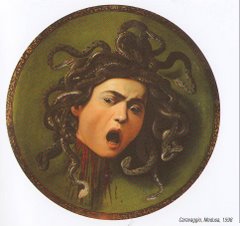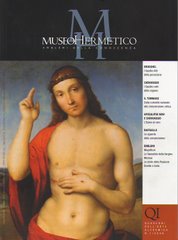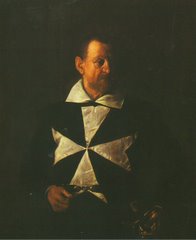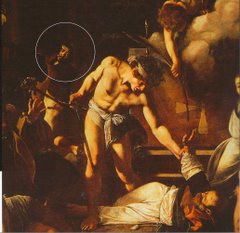
PSYCHOLOGY OF PERCEPTION
"All I know about the world, even through science, starts from my perception or from an experience of the world, without which, the symbols of science will have no meaning. We should not ask if we really perceive the world, but we should say, instead , that the world is what we perceive"
In 1945 M Merleau-Ponty wrote "Phenomenology of Perception" in an critical moment of western history. Destroyed by the atrocities caused by men in the two world wars, occidental culture started to look for the causes that had consented the outbreak of a culture of contempt, discrimination , aggression and indoctrination , phenomena that cyclically occur when there is a lack of education for critical perception of reality and for cognitive understanding of the symbols, of the models and hierarchies that are imposed, all of a sudden, on collective consciousness.
If the sleep of reason awakes the dormant monsters in human psyche, it is even worse the dullness
of perception caused by the loss of cultural, moral and spiritual identity that is outlined at the decline of every civilisation.
When individual and collective perceptions descend below the minimum level of consciousness (and this happens due to contingent factors such as scarcity of resources, information or expectations ) also the system of consciousness set up to overcome the crisis, becomes blind, victim of error and illusion
Edgar Morin summarises the first lesson necessary for future education " Everything we know is subject to the risk of error and illusion.
The education of the future should confront this double-faced problem of error and illusion.
The greatest error would be to underestimate the problem of error, the greatest illusion would be to underestimate the problem of illusion. Recognition of error and illusion is all the more difficult in that error and illusion are not recognised as such.
Error and illusion have been parasitizing the human mind from the first days of homo sapiens. When we consider the past, including the recent past, it seems to us that people were blinded by countless errors and illusions"
The idea of sin conceived by the authors of the four Gospels, part of them written in Greek, is different from the one codified by catholic culture in the following centuries. A sin, for humanistic culture, is essentially an error of perception and that is why the "arrow shot" by the mind misses the target
An error is a phenomenon that diminishes with experience, awareness, reflection and meditation, but anyway, it cannot be completely cancelled, since every action is subject to the risk of unexpected events, obstacles, resistance and doubts
The psychology of perception elaborated by Renaissance artists aimed at training the mind to hit the target by developing the peculiar faculties of perception.
Accurate perception does not necessarily come from an educated mind, accustomed to synthesizing facts, events and problems in the light of a specific reference frame -(the archer on the left)- but it comes from a mind whose bodily faculties have developed, psychologically, emotionally and in their ability to synthesize elements sensibly. The cognitive qualities of sensory intuition are characteristic of the woman’s mind, (the archer on the right). Integration of women’s creative faculties of perception with men’s cognitive metabolism, which for over five centuries was dominated by the rational scientific system, is certainly no easy task. The artist’s image suggests that the key to transformation "lies in in-depth exploration" of the evolutive potential of perception. Therefore, (the key is behind the target) -this occurs when egoism of the intellect undergoes a process of voluntary "putrefaction". Friar Basilio Valentino imparts his progressive growth of analytical understanding in extreme synthesis –here, the keys unlock a deeper understanding of human identity. Films, with often more amusing stories, can also transmit the same level of insight.
The film "What Women Want" ironically depicts a man’s quirky attempts to "enter" the woman’s psyche, her desires and perceptions. Needless to say, the various disguises and techniques adopted lead him nowhere. All the extra energy required to undergo such a transformation short-circuits the brain’s hemisphere and can cause the putrefaction of the "viewpoint" –which, for centuries, has separated, eluded, deceived, inhibited, manipulated, discriminated and excluded the "intuitive mind" from the processes of cultural elaboration of western conscience.
Mel Gibson plays a man who measures and studies his colleague’s creative faculties and intuitive perception. Actress Elen Hunt, (Helen in the film), is a successful advertising art director whose intuition and synthesizing quality notably surpasses Mel’s ability. Consequently, she becomes an element of conflict, dispute and professional challenge. After an accident in which the protagonist gets an electric shock, he acquires the ability to read the mind. He can finally read exactly what women think of him without them having to say anything. To perceive/know the sensations, emotions and desires of a woman’s soul triggers a very different understanding –involving the elaboration of images and words, thoughts and reflections, desires and choices in life. Mel, the prototype of the male chauvinist ladies’ man, will have to open his eyes to a brand new universe -the woman’s mind- in which emotions and rationality fuse into a lucid, precise and pragmatic perception of the present.
The simple realization and understanding of the intrinsic values of feminine perception favours the psychological ‘putrefaction’ of sexual roles and rids the limitations induced by the conditioning of social habits.
"All I know about the world, even through science, starts from my perception or from an experience of the world, without which, the symbols of science will have no meaning. We should not ask if we really perceive the world, but we should say, instead , that the world is what we perceive"
In 1945 M Merleau-Ponty wrote "Phenomenology of Perception" in an critical moment of western history. Destroyed by the atrocities caused by men in the two world wars, occidental culture started to look for the causes that had consented the outbreak of a culture of contempt, discrimination , aggression and indoctrination , phenomena that cyclically occur when there is a lack of education for critical perception of reality and for cognitive understanding of the symbols, of the models and hierarchies that are imposed, all of a sudden, on collective consciousness.
If the sleep of reason awakes the dormant monsters in human psyche, it is even worse the dullness
of perception caused by the loss of cultural, moral and spiritual identity that is outlined at the decline of every civilisation.
When individual and collective perceptions descend below the minimum level of consciousness (and this happens due to contingent factors such as scarcity of resources, information or expectations ) also the system of consciousness set up to overcome the crisis, becomes blind, victim of error and illusion
Edgar Morin summarises the first lesson necessary for future education " Everything we know is subject to the risk of error and illusion.
The education of the future should confront this double-faced problem of error and illusion.
The greatest error would be to underestimate the problem of error, the greatest illusion would be to underestimate the problem of illusion. Recognition of error and illusion is all the more difficult in that error and illusion are not recognised as such.
Error and illusion have been parasitizing the human mind from the first days of homo sapiens. When we consider the past, including the recent past, it seems to us that people were blinded by countless errors and illusions"
The idea of sin conceived by the authors of the four Gospels, part of them written in Greek, is different from the one codified by catholic culture in the following centuries. A sin, for humanistic culture, is essentially an error of perception and that is why the "arrow shot" by the mind misses the target
An error is a phenomenon that diminishes with experience, awareness, reflection and meditation, but anyway, it cannot be completely cancelled, since every action is subject to the risk of unexpected events, obstacles, resistance and doubts
The psychology of perception elaborated by Renaissance artists aimed at training the mind to hit the target by developing the peculiar faculties of perception.
Accurate perception does not necessarily come from an educated mind, accustomed to synthesizing facts, events and problems in the light of a specific reference frame -(the archer on the left)- but it comes from a mind whose bodily faculties have developed, psychologically, emotionally and in their ability to synthesize elements sensibly. The cognitive qualities of sensory intuition are characteristic of the woman’s mind, (the archer on the right). Integration of women’s creative faculties of perception with men’s cognitive metabolism, which for over five centuries was dominated by the rational scientific system, is certainly no easy task. The artist’s image suggests that the key to transformation "lies in in-depth exploration" of the evolutive potential of perception. Therefore, (the key is behind the target) -this occurs when egoism of the intellect undergoes a process of voluntary "putrefaction". Friar Basilio Valentino imparts his progressive growth of analytical understanding in extreme synthesis –here, the keys unlock a deeper understanding of human identity. Films, with often more amusing stories, can also transmit the same level of insight.
The film "What Women Want" ironically depicts a man’s quirky attempts to "enter" the woman’s psyche, her desires and perceptions. Needless to say, the various disguises and techniques adopted lead him nowhere. All the extra energy required to undergo such a transformation short-circuits the brain’s hemisphere and can cause the putrefaction of the "viewpoint" –which, for centuries, has separated, eluded, deceived, inhibited, manipulated, discriminated and excluded the "intuitive mind" from the processes of cultural elaboration of western conscience.
Mel Gibson plays a man who measures and studies his colleague’s creative faculties and intuitive perception. Actress Elen Hunt, (Helen in the film), is a successful advertising art director whose intuition and synthesizing quality notably surpasses Mel’s ability. Consequently, she becomes an element of conflict, dispute and professional challenge. After an accident in which the protagonist gets an electric shock, he acquires the ability to read the mind. He can finally read exactly what women think of him without them having to say anything. To perceive/know the sensations, emotions and desires of a woman’s soul triggers a very different understanding –involving the elaboration of images and words, thoughts and reflections, desires and choices in life. Mel, the prototype of the male chauvinist ladies’ man, will have to open his eyes to a brand new universe -the woman’s mind- in which emotions and rationality fuse into a lucid, precise and pragmatic perception of the present.
The simple realization and understanding of the intrinsic values of feminine perception favours the psychological ‘putrefaction’ of sexual roles and rids the limitations induced by the conditioning of social habits.
















Nessun commento:
Posta un commento